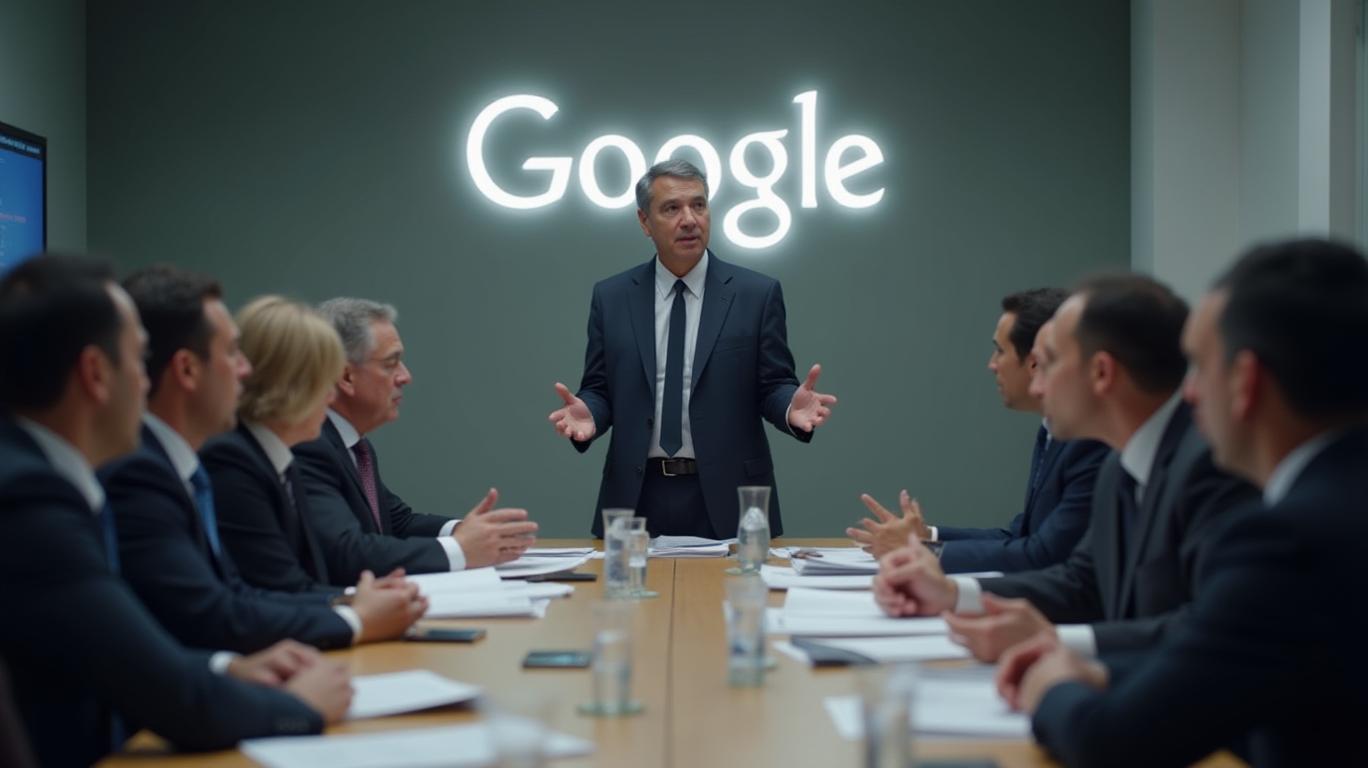Google Faces Antitrust Scrutiny Over $8 Billion Samsung Payments
Google has been paying Samsung a significant amount of money each month to pre-install its generative AI application, Gemini, on Samsung's devices. This practice has been deemed illegal twice before, yet GoogleGOOG-- continues to engage in it. Peter Fitzgerald, Google's vice president of platform and device partnerships, testified in a Washington federal court that the company began paying Samsung for Gemini-related services starting this year. The contract, which is set to last at least two years, involves fixed monthly payments based on the number of devices, as well as a share of the revenue Google earns from advertisements within the application.
Judge Amit Mehta, who previously ruled that Google's payments to Samsung to be the default search engine on its devices violated antitrust laws, is currently hearing testimony to determine what adjustments Google must make to rectify its illegal behavior. The exact amount Google pays Samsung monthly was not disclosed in court. However, during the opening statement, U.S. Department of Justice lawyer David Dahlquist described the payments as "substantial fixed monthly fees."
In another case involving Google's alleged monopolization of the Android ecosystem, testimony revealed that from 2020 to 2023, Google paid Samsung $8 billion to ensure that its search engine, Play Store, and Google Assistant were set as the default options on Samsung's mobile devices. In that case, a federal jury ruled in 2023 that Google abused its Google Play Store policies to consolidate its market position in the Android app market. Subsequently, a California federal judge ordered Google to lift restrictions, allowing developers to establish competitive app markets and payment systems. Google is currently appealing this decision.
Google's payments to Samsung for pre-installing the Gemini AI application serve as further evidence in the U.S. Department of Justice's antitrust lawsuit against Google. On Monday, Google and the U.S. Department of Justice, along with several state attorneys general, engaged in a heated debate in a Washington court over the remedial measures the judge should order to prevent Google from continuing to monopolize the online search engine and online advertising markets.
The U.S. government's proposed remedies include requiring Google to sell its Chrome browser business, granting competitors access to its search engine's internal data, and stopping the payment of substantial fees to secure exclusive positions on other online services and devices. Google, however, argued that these proposals would disrupt a range of products used daily by consumers and harm the U.S.'s technological leadership, ultimately hurting American consumers. Google representatives opposed the forced sale of the Chrome browser business and proposed an alternative antitrust remedy: allowing users to automatically select their preferred default browser while still sharing related revenue with competitors.
This latest antitrust trial is the most recent example of the increasing antitrust pressure Google faces. Just days ago, another federal judge ruled that Google had illegally monopolized a broad range of online advertising technology markets, a decision that will spark another round of "antitrust remedy hearings" in the coming months. Google's antitrust remedy process is the first time a U.S. court has considered whether to break up a major tech company since Microsoft successfully emerged from an antitrust case 25 years ago. If Judge Amit Mehta ultimately forces Google to sell its Chrome browser business, it would be the first time a U.S. Department of Justice antitrust case has resulted in the complete breakup of a domestic company since the 1982 split of "Ma Bell," which later became AT&T.
In a 286-page preliminary ruling last year, Judge Amit Mehta wrote, "Google's distribution agreements lock up the vast majority of the general search services market, harming competitors' opportunities to compete." He noted that Google's dominance in the distribution of its business on smartphones, mobile devices, or PC browsers allows it to significantly increase online advertising prices without any impact. Regardless of Judge Amit Mehta's decision, it will have a profound impact on the U.S. government's ability to regulate the tech industry and more broadly control corporate business concentration. However, Google is expected to continue appealing and may take the case to the U.S. Supreme Court, meaning any corrective or remedial measures could take years to implement, rather than taking effect this year.
Since Washington's failed attempt to break up Microsoft 20 years ago, this is the most significant potential antitrust action against a major U.S. tech company for illegal monopolistic behavior. It indicates that Google may face a prolonged legal battle similar to that of Microsoft, with the possibility of a breakup remaining on the table. Google will need to go through a lengthy legal process to avoid a breakup.

Stay ahead with real-time Wall Street scoops.
Latest Articles
Stay ahead of the market.
Get curated U.S. market news, insights and key dates delivered to your inbox.

Comments
No comments yet